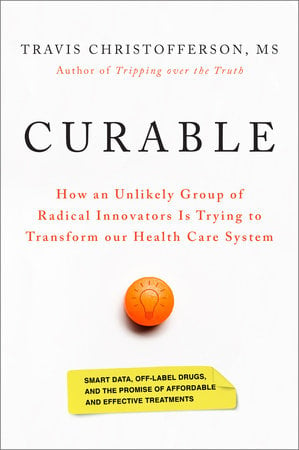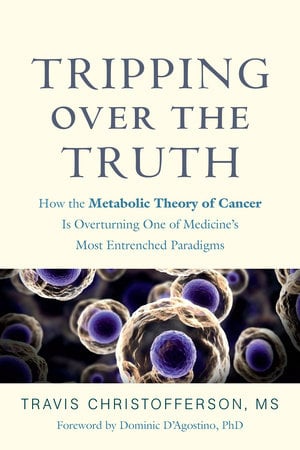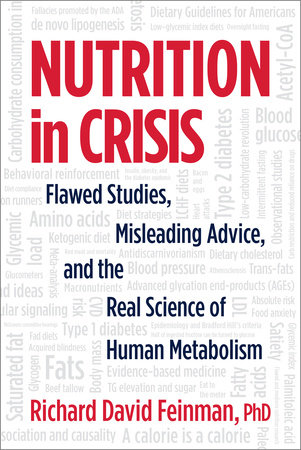Putting the Health Back in Health Care
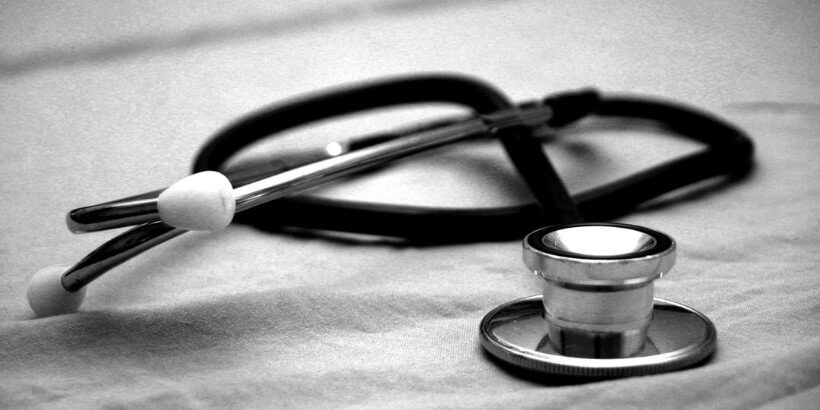
The United States is the sickest nation in the Western world. Despite modern innovations in science, our health care system is broken.
In Curable, science journalist and health care advocate Travis Christofferson asks an important question:
What if the roots of the health care crisis are systemic and psychological, perpetuated not only by corporate influence, but by deeply entrenched patterns of irrational thought—and how does this implicate the very scientific research and data that doctors rely on to successfully treat their patients?
He demands that we recognize health care as a badly organized system, which is inherently fixable.
The following is an excerpt from an interview with Travis Christofferson, author of Curable from the Winter 2019 Seasonal Journal. It has been adapted for the web.
Atul Gawande said, “The system is broken, and better is possible.” How is better possible?
There is a massive amount of over treatment, and variation in that treatment. There are many different electronic health re- cords (EHRs) for notes, prescriptions, and billing.
The second problem is that doctors see clinical pathways and “best practice protocols” as a straightjacket that limits their treatment options, when, in fact, they’re very effective at establishing best practices for different treatment scenarios—the best time to put in a stent, for example—which lessens mistakes.
The data is clear that establishing best practice does work, while still allowing for human intuition. I’m talking about the underutilized ultra-basics: repurposing already existing drugs, vigilant hand washing, use of checklists.
The absurd simplicity of a checklist paired with the enormous impact of life-saving…it should be a no-brainer! But doctors often don’t like checklists. It often has to do with ego.
You can’t just say to a highly educated, experienced physician, “Do it my way.”They need to be shown the data that proves the simple things work.
 Meanwhile, doctors are overworked, going from patient to patient all day. And they are long days. They get hungry, tired, irritable, and understandably taxed—even annoyed at the expectation that every patient should be their primary focus.
Meanwhile, doctors are overworked, going from patient to patient all day. And they are long days. They get hungry, tired, irritable, and understandably taxed—even annoyed at the expectation that every patient should be their primary focus.
Doctors are only human. They, too, want to go home to their families at the end of the day. They need sleep.
This professional and emotional system-wide fatigue ends up translating into highly regarded doctors not paying close attention to the living, breathing people sitting right there in front of them in the exam room.
Simple, first-hand observation of a patient—a whole patient—can lead to the most effective “prescriptions” for health, which often don’t require medication as we’ve come to know it. But lapses in basic observation can lead to misdiagnoses of the worst kind.
What I’m interested in is how we release physicians from the structural and administrative minutiae and bullshit so they can be freed up to apply their human intuition to individual patient scenarios, and then pair that intuition with their ex- tensive, very specialized knowledge base.
It’s the interplay and information exchange—the mutualism between these two types of knowing—that will result in the best doctor-patient relations, the highest quality information sharing, the most valuable knowledge building for all parties, the most accurate diagnoses and effective treatments, dramatically increased re- covery rates, a much more enjoyable health care experience for patients, and greater professional gratification for doctors—not to mention the “softer” rewards of making a positive difference all around.
As it stands, physicians are practicing under a huge cloud of uncertainty. Largely, they’re selling an illusion of control. And we, to our detriment, buy right into it. Our health system is basically operating in the Dark Ages.
What simple solution should we implement to make our health care system function better?
The most obvious is to change the way doctors get paid. High quality systems like the Mayo Clinic pay their doctors salaries. This dramatically changes how medicine is practiced.
When doctors are compensated in a “fee-for-service” structure, they’re forced to think like businessmen and have to consider which procedure will lose money and which will make money. This is a terrible incentive for someone entrusted with the care of others’ wellbeing.
What is the future of medicine?
 I don’t see how anyone cannot be optimistic about the future of medicine.
I don’t see how anyone cannot be optimistic about the future of medicine.
Sure, we have immediate problems to surmount, but beyond that, medicine can only get better. Technological progress is exponential, and right now, there’s an intersection of remarkably powerful tools that have the ability to profoundly manipulate human health.
For example, we can now sequence the entire genome of an individual at a reasonable cost. This was inconceivable decades ago.
Now, imagine this sequencing technology combined with a new technology called CRISPR cas9 that can rewrite the genome with exact precision. This combination has the potential to mitigate a tremendous amount of suffering.
Scientists have developed a technology that can de-age a cell of any age by co-opting the cellular program that unfolds at the moment of fertilization— a process that re-boots our DNA to a ground state, thereby resetting the age of the cell to biological age zero.
This is not science fiction! This is here today. It’s only a matter of time before this technology becomes incorporated into real-world therapies.
Additionally, we’re beginning to understand the variables that matter most to our individual health. This empowers us to live better, healthier lives. It’s not difficult to imagine a future where all human disease is solved, including aging.
This, of course, presents society with entirely new issues, but any civilization with this degree of engineering and problem-solving acuity will be able to solve these secondary challenges as well.
Tripping Over the Truth
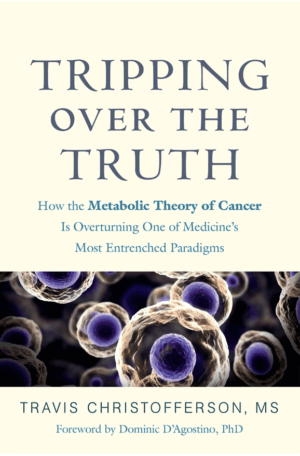
In the wake of the Cancer Genome Atlas project’s failure to provide a legible roadmap to a cure, Travis Christofferson illuminates a promising blend of old and new perspectives on the disease.
Tripping over the Truth follows the story of cancer’s proposed metabolic origin, from the vaunted halls of the German scientific golden age to modern laboratories around the world—a journey through time and science that leads to an unlikely connecting-of-the-dots with profound therapeutic implications.
Tracing humanity’s struggle to understand the cellular events that conspire to form malignancy, the book reads like a detective novel, full of twists and cover-ups, blind-alleys and striking moments of discovery by people with uncommonvision, grit, and fortitude.
Ultimately, Christofferson arrives at a conclusion that challenges everything we thought we knew, suggesting the reason for the failed war against cancer stems from a flawed paradigm that categorizes it as an exclusively genetic disease.
For anyone affected by cancer and the physicians who struggle to treat it, this book provides a fresh and hopeful perspective.
It explores the new and exciting non-toxic therapies born from the emerging metabolic theory of cancer that redraws the battle map, directing researchers to approach treatment from a different angle, framing it as a gentle rehabilitation rather than all-out combat.
Tripping Over the Truth may one day prove to be the text that tipped the scales in favor of beating the unbeatable disease.
Recommended Reads
Flawed Studies, Misleading Advice, and the Real Science of Human Metabolism
Recent Articles
These snacks might be too darn cute to take a bite of! Brighten up snack time this winter using fruits and veggies we all know and love.
Read MoreYou’ve Been Missing Out! Bone Broth is the ultimate superfood, packed with nutrients and goodness. Consider adding this nutrient-rich, immune system boosting bone broth into your daily diet.
Read MoreThese small fruits are a delicious source of nutrients that you can find almost anywhere. Get started on acorn harvesting with help from these simple tips!
Read MoreWondering what to do with pumpkin seeds? Instead of roasting them, try these alternative ways to prepare & use seeds! Plus a must-try pumpkin granola recipe.
Read MoreTired of trying different traditional medicines to relieve inflammation and joint pain? We have the perfect solution: honey bee venom.
Read More

